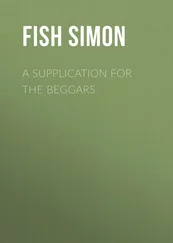“Ah, here we are...thank you, Martha,” she said as Martha, old and bent, hobbled in to set the tea tray down. Turning to me, Miss Thompson added, “I know Konica is having an arranged marriage, but I don’t understand why Mr. Sen would get his daughter married to someone she can’t even talk to.”
“He does speak good Bengali, you know—”
“Her fiancé does? Oh, so you know this young man, Layla?”
“No, no,” I said quickly. “I mean he probably speaks Bengali. If he is an Indian educated abroad, I am sure he is bilingual. Most of them are.”
“I hope so for Konica’s sake. The poor girl. Her father said to give her plenty of homework. ‘Mastering a foreign language is not a matter of homework, Mr. Sen,’ I told him. It’s a matter of practice.”
“She can practice her English with her fiancé, I suppose,” I said. Just thinking about Manik and Kona cozying up together triggered a stab of jealousy.
“I suppose so, dear. I am not sure how often they meet or how much they talk to each other, really. It’s all very formal, this arranged marriage. More between the two families, really.” Miss Thompson paused thoughtfully. Suddenly her face lit up and she clapped her hands. “Why, I just got me a grand idea! Why don’t you help her, Layla? She can practice speaking English with you. You are both the same age—I am sure you will find plenty to talk about. How very fortunate you are neighbors! May I suggest this to Konica’s father, if you don’t mind?”
“Yes, of course,” I said numbly. What else could I say?
Miss Thompson looked very pleased. “So that settles it, then,” she said. “Now tell me about yourself. The Rai Bahadur says you want to become a teacher? Marvelous! I am so proud of you, Layla. You were born to follow in your grandfather’s footsteps. I know he is counting on you to take over his school someday. You will do a brilliant job.”
“I hope so,” I said absently. All I could think of was how Kona had chinked past me with her musical bangles and the faint scent of jasmine that trailed softly behind her.
Of course, I knew I would never hear from Kona or her father, but how could I ever explain that to Miss Thompson? Although the Sens lived just a few doors down from us, our families always avoided each other. Dadamoshai was openly contemptuous of Mr. Sen’s narrow-minded politics, and the Sens probably thought my grandfather a loose cannon and disapproved of how he was raising me. They were both ideologically different—in fact, polar opposites.
Dadamoshai had plenty of inherited wealth but gave it all away to charity and chose to live like a monk. Mr. Sen, on the other hand, came from a trader class and had risen from frugal means to become the richest man in town. The joke in town was that he had built an entire mansion with bricks he pilfered from a construction site during his constitutional walks. This, of course, was just a manner of speaking, but he was known to be an unscrupulous businessman who accumulated his wealth slyly and at the expense of others.
But at the very heart of the matter the fact remained that I was an inauspicious child. Bad luck was viewed as something contagious in our society. It was believed one person’s luck rubbed off onto another. This was the reason why I was never invited to social functions like weddings and births. At funerals, on the other hand, I was always welcome.
Miss Thompson continued to puzzle over why her “grand idea” never took root. She mentioned that Kona’s father said he would practice speaking English with his daughter if that was what was required. Miss Thompson did not have the heart to tell him it would do no good. Mr. Sen’s own English was pretty dismal, she said, but she did not want to offend the poor man, so she let it pass.
Perhaps the best way I could have explained it to Miss Thompson was this way: Kona and I were like two separate rivers flowing side by side, but our geographies were so vastly different it was certain we would never meet. Hers was a course, smooth and predictable, leading straight to the ocean, while mine was uncharted and unknown, only to be determined by the invisible landscape of my destiny.
* * *
Sister Cecilia, the chinless nun with bristling whiskers and an ashen complexion to match her habit, was in charge of a small library of the Sacred Heart Convent. She beamed seeing me, hopeful perhaps, I was leaning toward the fold. Unmarried and educated, I was, after all, a perfect fit for the convent. Why else would I be at her library every Tuesday to immerse myself in Bible studies? Little did Sister Cecilia know I would have headed for the same bookshelf by the window had it contained books on amoebic dysentery. Besides, my aspirations were far from holy.
The Sacred Heart Convent stood opposite Miss Thompson’s house. The shelf filled with books on Bible studies was by the window from where I could get a clear view of Miss Thompson’s front gate and see Kona every week. I only caught a brief glimpse of her as she emerged from the house and stepped into the rickshaw. I noticed how she waited demurely for the rickshaw to be brought up to her. How she stepped up daintily on the floorboard, arranged her sari pleats nicely and sat with her hands folded primly on her lap. I tried to see her through Manik’s eyes. She was very feminine and walked on delicate feet, I decided. I imagined she had beautiful, long hair, luxurious even, when left open. Maybe Manik liked demure women with long hair, delicate feet and gold bangles that chinked softly, and a soft voice that chinked softly, too. Not someone brisk and angular, full of inflamed opinions and sharp of speech. Which man liked an argumentative woman? It was grating and unfeminine. I began to steadily loathe myself.
I peeked over the top of The Book of Job I was holding. Sister Cecilia caught my eye and gave me an encouraging smile. I closed the book and slid it back into the empty slot on the shelf.
“Thank you,” I said to Sister Cecilia as I walked toward the door.
“See you again soon,” she called back in a cracked old voice. “God bless you, my child.”
I wondered what Sister Cecilia would say if she found out my real reason for coming to the library? She would be terribly disillusioned, no doubt. Not only was I pretending to be holy, I was secretly coveting a man who was formally betrothed to another. But thankfully, Sister Cecelia would never find out, because I, Layla Roy, was the self-proclaimed mistress of deceit.
CHAPTER 3
I returned home one evening and from the garden path I could hear voices on the veranda. My heart took a tumble, for there he was—Manik Deb. I felt instant panic. For some reason, Manik Deb could trigger a flight response in me faster than a house fire.
Boris Ivanov, Dadamoshai and Manik were engaged in animated discussion. I tiptoed past the jasmine vines, crept into the house through the back door in the kitchen and went straight to my bedroom.
My bedroom window opened out onto the veranda, and I had a clear view of Manik Deb through a slit in the curtain. I fingered a small tear in the fabric as I watched him. I admired the contours of his face and the easy way he inhabited his body. It was a trait common in animals, I thought, that unconscious intimacy with self, an unconditional acceptance of gristle and bone. His thumb absently stroked his lower lip as he listened.
“What our patriotic brothers don’t understand,” Dadamoshai was saying, “is that I am advocating English as the official language simply because it is the most practical solution. India has twenty-one different languages and each of those has several dialects. We are a culturally diverse people—Indians are not of a feather and we are not going to flock together. It’s like trying to get twenty-one different species of birds to talk to one another. Besides, who is to say which language is the best for our country? Some have proposed Hindi. The Bengalis are insulted because they believe their language is superior. The South Indians are ready to go to war. South Indian languages, as you know, are completely alien from all other Indian language. Can you teach a blue jay to coo like a mourning dove? You tell me.”
Читать дальше












